By reducing our reliance on chemical fertilizers, policymakers could turn the food crisis into a genuine opportunity towards shifting subsidies away from agribusiness-led to agroecological-led farming systems and a managed transition to healthy sustainable patterns of production, explains Jayati Ghosh. Lynn Fries interviews Jayati Ghosh on GPEnewsdocs.
LYNN FRIES: Hello and welcome. I’m Lynn Fries producer of Global Political Economy or GPEnewsdocs. I’m delighted to be here with guest Jayati Ghosh. We will be talking about her OPED The Fertilizer Conundrum.
A renowned development economist, Jayati Ghosh is currently Professor of Economics at University of Massachusetts Amherst. Prior to that she held a longstanding professorship at Jawaharlal Nehru University in New Delhi. She is Founding Member of IDEAs, the International Development Economists Association. She is a prolific author and high level consultant to international organizations and served as high level member of international boards and commissions. Among her numerous distinctions, Jayati Ghosh has been named the 2023 recipient of the Galbraith Award by the Agricultural and Applied Economics Association. Welcome, Jayati.
JAYATI GHOSH: Thank you.
FRIES: A thread running through the argument you put forward in the The Fertilizer Conundrum is that governments should shift away from policy making that incentivizes chemical farming. And to instead incentivize farming without chemicals, so agro-ecological farming. The larger argument being that when it comes to the production, distribution, and consumption of food there needs to be a major paradigm shift from decade’s long practices that favor industrial food and agriculture. To give viewers a quick take on why, I will briefly cite some opening lines from your OPED <to quote>:
The global food system is broken. Largely dominated by multinational corporations, it enables and encourages unsustainable and unhealthy production and consumption patterns and generates enormous waste across all stages of production and distribution. The global food system also produces massive greenhouse-gas emissions, thereby inflicting substantial ecological damage, and deprives small-scale farmers in many countries of secure and viable livelihoods. Perhaps worst of all, food access remains profoundly unequal, causing extreme hunger to increase rather than decline.
FRIES: Start by talking about corporate concentration in the food system and what has happened as a result of that.
GHOSH: Actually, what we don’t realize often is that food is one of the most concentrated industries in the world. And it’s concentrated at two different levels. It’s horizontally concentrated. That is to say every sub-sector has got a few players who dominate that industry, but it’s also vertically concentrated. That is to say literally from farm to table. It is often one company that is organizing the entire thing. And reaping benefits and profits out of every segment of that production or distribution.
So whether it is from the inputs that enable cultivation or even the farm credit that is required for cultivation onto the process of cultivation, the storage, the initial processing, the transport, the distribution and finally the supermarkets and the retail. You find that major agribusinesses dominate this industry.
Which ever part of the food system you’re talking about, you will find that there is a role somewhere for these very large agribusinesses. And particularly what I call the big four: ABCD. That is Archer Daniels Midlands, Bunge, Cargill, and Louis Dreyfus who dominate the industry. And they dominate all the different segments of it. So whether you are a farmer, a small cultivator in some particular part of the world or you are a final consumer in a different part of the world completely, you are somehow dependent on these corporations.
One of the things that has happened as a result of this immense concentration is a real breakdown of the way in which people used to think traditionally about food. And that’s especially in the rich countries, which is to say that we would think about food as being seasonal. Certain crops and certain fruit and vegetables would be available at particular times of the year. We would think of freshness as being a dominant concern. We would think of the availability, not just in terms of year-round access and all the different types of food, but you would think of it in terms of local varieties.
Now that’s no longer the case, especially in the advanced economies. Consumers are accustomed to strawberries year-round. They’re accustomed to fish from every part of the world. And animal products from every part of the world. And vegetables of all kinds and fruit of all kinds available whenever they want.
Now, there’s something that is unnatural about this, and the way this is done is not only through massive storage and transport facilities. Which are of course, you know, hugely carbon emitting. But also through ultimately undesirable ways of storing and encouraging particular types of consumption that often turn out to be quite unhealthy.
So we are encouraging and in fact it’s partly marketing by the major retailers as well, we are encouraging much more processed food consumption, which is much more unhealthy. We are encouraging the uses of additives, of preservatives, of different kinds of chemicals. That are required to transport food over long distances, including fish and seafood and things like that. We are encouraging a lot more meat consumption than in the past. And especially meat that requires huge amounts of land just simply to enable the grain that will feed them. And so in many, many different ways, we’re encouraging unsustainable consumption.
But then we’re also encouraging unsustainable production. Because we are trying to maximize the productivity of the land no matter what it does in terms of the chemical additives that we are using. We use chemical fertilizers, we use chemical pesticides. We use various kinds of additional inputs. We know that this has an impact on soil quality. We know that this can even have an impact on the product, on the crop, and can affect how healthy. Those are, but we keep doing more and more of that because we want to maximize the yield.
And we are increasingly getting into genetic modifications. Which are designed not only to sometimes avoid the chemicals, but more often to give you the perfect crop: the perfectly round red tomato, the perfectly shaped potato, the perfect egg and so on and so forth.
We’re looking at different types of genetic modifications. That are designed to appeal to a very standardized consumer. And to enable much greater preservation over long distances of transport.
So all of these add up to really quite an unhealthy system of production and consumption. But it’s also deeply unsustainable from the point of view of the planet. So it’s unhealthy for both people and planet. Because of course it’s massively carbon emitting, but it also erodes the soil. It also leads to lots of other kinds of concerns about the ecologies in which these plants are grown.
FRIES: To give viewers a picture worth a thousand words, I am going to put up a visual on corporate concentration in the food system. This graphic shows different sectors of the agri-food chain. And the percentage of the world market that the top firms control. From seeds, to agrochemicals, to fertilizers that we are talking about today, to farm machinery, animal pharmaceuticals, the global grain traders so the Big Four ABCD firms you just mentioned, to the food processors and last but not least retailers. In making the case the global food system is broken, in this OPED, why did you focus on fertilizers?
GHOSH: Actually, I was concerned about fertilizers, of course, because of the fact that, you know, the recent increase in prices has been largely driven by profits as in so many of the major commodities in the world over the last two years. But also because to me it represents a dilemma that is at the heart of so many of our policy decisions over the last couple of years. Which is the dilemma between what we need to do in the medium and long term, and what is the immediate short term kind of policy response.
And in the case of fertilizers, we’ve had a dramatic increase in prices over the last few years.Which is of course bad news because it affects especially small cultivators all over the world. Many of them are now finding it unaffordable to use fertilizers. And if you don’t use them, that will affect yields that will affect local food supply.
So it’s not just the livelihoods of farmers, but it’s also the ability of many developing countries to produce the food that they need. All of that is affected.
So how do you respond? And the immediate attempt is to respond by somehow reducing these prices or subsidizing fertilizers when countries can afford that. That’s in a way counterproductive.
Because as I’ve said, fertilizers are part of a chemical input dependence,which is not really healthy. And where we really do need to be thinking of alternatives and we have alternatives. It’s just that those alternatives will take time. They will be more expensive. We need to invest a lot more in them. And instead of doing that, we quickly try and somehow manage the big increase in fertilizer prices.
FRIES: Your OPED cited a study on profit driven price increases in fertilizers. Aptly titled A Corporate Cartel Fertilises Food Inflation published by GRAIN and the Institute for Agriculture and Trade Policy May 2023 as an update to an earlier report The Fertiliser Trap published in 2022.
A graph in that study shows the total profits of the big nine fertilizer companies over the past five years. So 2018 to 2022. According to this study, these profits exponentially grew from an average of around US$14 billion before the COVID-19 pandemic to US$28 billion in 2021. And then to an astounding US$49 billion last year. Give us some context on this dramatic rise in fertilizers.
GHOSH: Yes. I think, you know, the evidence is now mounting across the world that so many price increases of the last two years have been delivered by increasing profit margins. I mean, even the IMF has come up with the study now that more or less confirms this. When my colleague Isabella Weber mentioned this way back about two years ago, she was pilloried for making this argument.
But now it’s actually become accepted wisdom. That the recent period is not one where supply shortages were the dominant reason for price increases. It’s really that the news about possible supply shortages -whether because of COVID related transport constraints or because of the Ukraine war and the impact this might have on Russian and Ukrainian exports – was used by multinational corporations in energy and in grains. It was used by them to jack up their prices, basically increase their profit margins.
So Russia is a major exporter of fertilizer. And even though it wasn’t really that Russian supply was affected. It turns out now we have the evidence it wasn’t affected – but major fertilizer companies could simply use this. And say: oh look, fertilizer is bound to be affected.So clearly the price is going up. And so they increased their profit margins from about, I think, 22% to as much as 36%. Dramatic increases in profits over sales.
FRIES: Explain more about the issue of government responses to this increase in the price of chemical fertilizers.
GHOSH: I think there are two issues here. And one is the fact that, as I mentioned, there’s this contradiction between the short term response and the long term response. But the other is that, you know, also you should be seeing these rising prices as a way of shifting production and consumption away from something that is essentially not desirable.
And that is true of fossil fuels. And it is also true of fertilizers. In fact, as you know, a lot of fertilizers come out of fossil fuel. So there’s a strong interdependence between the two.
So in the immediate case, what do you do?
Well, I think there is a very strong case to do a windfall profits tax. And the windfall profits tax should be so high as to discourage attempts to just raise prices. Because you think you can get away with it. Which is what’s been happening over the past couple of years. Really for both the fossil fuel companies and fertilizer companies and a bunch of other corporations, really.
But also a strong case in certain countries for price regulation. For saying: well, no, you can’t really increase these prices because it’s not justified by your cost increases. This is something that’s been done. Not just in socialist countries but it’s been done in the United States in the wartime. I’ve been reading about Galbraith’s price controls during and after the Second World War, for example. So it’s possible to exercise price controls in sectors that are seen to be strategic, important, and essential.
But that leaves pending the larger question. Now, how do we then convert this broader problem into a possible opportunity. And you see here is where agroecology…Now there is so much scientific evidence that it is viable. It is doable. It is sustainable. It is desirable. In other words, there’s really no good reason for not subsidizing and pushing and promoting agro ecological techniques.
What are those? Well, those are really techniques that rely much more on natural farming. Not necessarily all organic, but certainly much more natural. So natural fertilizers, natural pesticides. Much more local products. Not things that are necessarily out of season or requiring special efforts to grow in particular areas. Things that can be produced seasonally and consumed as far as possible locally. And not have to rely on being transported vast distances for export.
Now these techniques are to begin with more expensive. Why? Simply because they haven’t benefited from all the massive subsidies that fossil fuels and fertilizers have got. So, you know, when people say: oh, that’s too expensive. They leave out the fact that both oil and fertilizer have benefited from decades of massive subsidies.
And when I say massive. The official estimate of subsidies in 2020 before the Ukraine War and all of that, by the IMF was about $700 billion is the total amount of subsidies. Just going into fossil fuels. But if you take the indirect subsidies as well, it was $5.8 trillion. That’s nearly $6 trillion.
Can you imagine going into subsidies for fossil fuels? And of course, those subsidies make fertilizers cheaper as well. And in addition, many countries then further subsidize fertilizer.
So we are actually making it much cheaper than it is. And then we are saying: oh, agroecology is too expensive. Whereas if we shift some of those subsidies away from fossil fuel and fertilizer to agro- ecological techniques, we will get healthier outcomes and more sustainable outcomes.
FRIES: It is not so hard to understand how decades of massive subsidies for fossil fuel and the related industrial agriculture with its chemical fertilizers has resulted in a global food system where so many of the world’s farmers and countries are dependent on chemical inputs. Comment more on the challenge for those who want to shift away from that path.
GHOSH: So the shift away from chemical agriculture cannot be abrupt. It can’t be something that you just do like that. It has to be a much more thought out, careful, sensitive transition. So, for example, in Sri Lanka in 2021, they did this massive rejection of chemical fertilizer imports. And that proved to be a complete disaster for the farmers in the country, for agricultural harvests in the country, for the economy.
You know, you can’t do this kind of thing, which will dramatically affect farmers’ ability to produce their yields and their incomes without providing some compensation. And without easing it over a longer period. So this has to be a transition which you begin now.
So the point is not to say: well, we will do this at some point in the future. And we’ll just suddenly do a big dramatic shift. No, the point is to say: we start this year. We start this year by providing farmers with special subsidies if they’re going to engage in agro-ecological practices.
FRIES: Give us a bit of a glimpse of the situation of India in all this.
GHOSH: India is a subcontinent that is full of all kinds of cultivation practices and farmers.So we have everything. We have farmers who are completely dependent on chemical agriculture and want to continue that dependence. And we have those who are interested in agroecology and doing alternative farming techniques. We have women farmers groups who are not even recognized as farmers in the official data.We have many different kinds of groups who have all remarkably come together
Now in their demands, they have a huge list of demands, some of them are in fact contradictory. Because of the nature of that very disparate movement. Some are saying continue subsidizing the chemical agriculture. Some are saying shift those subsidies to more sustainable practices and techniques.
But all of them are saying that you have to keep farmers in mind when you’re formulating policies about food. You cannot design policies for food consulting only with corporations. You have to talk to those who are actually producing the food. And I think it’s that central point which governments miss, and even international organizations miss.
FRIES: You link the need for this shift in production from chemical agriculture to a more natural agriculture to a shift in patterns of consumption. Expand on that.
GHOSH: What we have today, as I mentioned, why is our global food system broken? Because we have a pattern of consumption encouraged by this heavily concentrated agribusiness. That as I mentioned which is deeply inequalizing but it’s also ridiculous because it encourages malnutrition. And malnutrition of kinds, undernutrition and excess nutrition. That is to say over consumption, obesity, and all the illnesses that come with obesity.
And that type of food consumption is being pushed by retailers. Who are parts of the same big nexus of agribusiness that I’ve mentioned even in the developing world. So we now have crises of obesity, let’s say, in countries like South Africa. Often in the same household, you will find undernutrition and malnutrition because of obesity in the same household.
Because the poor are underfeeding themselves or they’re overfeeding on junk food and unprocessed foods which are deeply unhealthy. In some of the Pacific Islands you have diseases, heart disease, diabetes. All kinds of things coming from the consumption of processed foods. From particular types of very fatty meat products that are pushed and encouraged and advertised by these global marketing agencies.
And so you get all kinds of new illnesses coming. Because there is a push towards certain kind of food consumption that is not just unhealthy it doesn’t really help in giving you better nutrition. But at the same time, it’s very important for the profits of these major corporations.
The rich in the developed world are now very conscious of this. And they eat healthy. And they eat organic. And they eat local. And they eat slow food. And they’ve got all of that. The poor in the US on the other hand eat more and more of the processed food. And they eat excessively large portions. Which are again pushed by lobbies. And they eat much more fat and sugar-based processed foods. Which are made cheaper than natural healthier foods.
FRIES: As I noted earlier, in this OPED you say that perhaps worst of all the things wrong with our global food system is this point you just made that food access remains profoundly unequal. Comment briefly on that, so effectively, the political economy of food.
GHOSH: Food has always bees, at one level it’scentral to human existence. At another level, it is deeply indicative of all the divisions of society and economy. So access to food is not something that is necessarily universal and access to different types of food. It’s critically dependent on not just the total production or availability in any one country or globally.It’s very much determined by class, by income, by the pattern of livelihood, by the kinds of social discrimination that enable access or lack of it.
So the broader political economy of food actually reflects the broader global political economy of everything. Of all the different power relations that are determining how our economies are evolving. So the fact of extreme inequalities of income and assets… which we know have ballooned in the last decade, for example. Or extreme inequalities of health and so on.All of these are also directly reflected in inequalities in access to food. And inequalities in outcomes with respect to food.
So as I’ve mentioned, whether it is malnutrition because of undernutrition or malnutrition because of nutrition of the wrong kind, which gives you different kinds of diseases. All of these are very much reflective of the broader tendencies of inequality in our economies.
FRIES: So this kind of commentary is conspicuously absent in mainstream media.Instead agribusiness – whether chemical fertilizers and pesticides, GMO or next generation products like gene editing – is presented as the solution for feeding the world.
GHOSH: I think there’s a real problem in the way in which agribusiness and global media have worked together. To sort of make people feel that there is no alternative.
That we have to have this pattern of production and consumption of food because that’s the only way in which people will be fed. We now know that the food problem is ultimately one of distribution. And that, you know, there are surplus and excess and wastage.
Forty percent of the food in the world is wasted. While huge amounts of people, billions of people in the world, are going hungry. And they’re going hungry not just because of failure of global supply. They’re going hungry because of local supply failures. And because their livelihoods are not enough for them to be able to afford food. In the poorer countries which are affected.
You know, food importing countries which are affected by exchange rate changes and economic distress and lack of employment. So we know that the causes of hunger are different. And yet we persist in thinking it’s a problem of aggregate supply. It’s not.
Even today the attempt to reform agriculture in Africa is unfortunately going in the wrong direction. It’s led by an initiative called the Alliance for Green Revolution in Africa, AGRA. Which is really something driven by the major foundations and the Gates Foundation in particular but have got the support of the World Food Summit. And AGRA is really pushing this chemical agriculture that I have been talking about.
FRIES: I will just jump in here to note there is tremendoustremendous opposition to the decade’s long initiative driven by the Alliance for a Green Revolution in Africa. One such example, The Alliance for Food Sovereignty in Africa has called upon AGRA donors to end support for green revolution programs in Africa.
This in a letter that critiqued the Alliance for a Green Revolution in Africa as an unequivocal failure. And AFSA is the biggest civil society movement in Africa. And unlike Western philanthropists like Bill Gates, what they want is a transition to agroecology as the dominant farming and food system in Africa.
GHOSH: In fact, AGRA’s own assessments and independent evaluations that they have commissioned all indicate that they haven’t been successful. They haven’t achieved their goals. That the so-called successes they have achieved, the minor increases in yields in a few countries and so on, are nowhere near their stated ambitions. And that in many cases they’ve actually made things worse, if not stagnant.
So to push a chemical model of agriculture at this point in humanity when we know that there are better alternatives available is not just irresponsible, I think it’s really counterproductive. And it’s going in absolutely the wrong way.
The point about chemical fertilizers is not just that they are bad from the point of view of say, CO2 emissions. Which they are. I think they contribute about 2.4% of global emissions at the moment. They are very strongly related to the fossil fuel industry. A lot of the nitrogen fertilizers come out as a by product of fossil fuel production. So again, it’s very closely related to the whole carbon emission problem.
But they also have a terrible impact in terms of farming itself. They lead to soil erosion. They lead to the degradation of the quality of the soil. They have implications for the quality of the output and the crops. And even for the health of the crops.
So chemical agriculture is bad for the ecology. That is, it’s bad for the local area, the land, the nature around it. And it’s bad for human health. And of course it’s also then bad for the planet in terms of carbon emissions.
We have to recognize this and then think of ways to ease ourselves out of this dependence on chemical agriculture. We embraced it across the world because it provided higher and higher yields. And we thought that that was essential for solving the food problem.
We now know that it’s not essential. That you can solve the food problem with sustainable yields using ecological techniques. But because we are subsidizing chemical agriculture and chemical inputs so heavily ecological techniques are not seen as profitable. Or even competitive. So we have to shift, we have to shift our subsidies away from chemical agriculture towards more natural agriculture.
FRIES: Talk more about power relations. That as you commented earlier are determining how our economies and more specifically food systems are evolving.
GHOSH:One of the tragedies of our times is the extent to which multilateral fora have been taken over. Or manipulated or dominated by private commercial interests. And particularly by large multinational corporations. Who have not just lobbying power but they have the ability to shall we say infiltrate many of these organizations.
I think it’s a tragedy in many sectors but it’s particularly a tragedy in the world food system. And the fact that even the World Food Summit relied heavily on sponsors who were private food corporations. And that so many of the big initiatives for changing agriculture rely on direct or indirect sponsorship from big corporations. I think that’s very unfortunate.
And of course it makes it much harder for, shall we say, the voice of sanity to prevail. Because the voice of sanity would say: don’t do this. Don’t make mistakes which you don’t need to make when you know that there are other options available. But the voice of profit is saying: well, go ahead and do this. And we’ll worry about the impact later. Because right now you’ll get some benefits and we will get even bigger benefits. So countering that voice of profit is a tough call.
But I do believe that there are more and more voices around this. There are many people in different food sovereignty and farmer sovereignty movements around the world. Who are trying to make themselves heard. And there are many new initiatives coming up.
But I do also believe that eventually these problems will become so severe. And so telling that humanity will have no choice but to take the sensible path.
FRIES: Do you see this as something of an inflection point? I noted that in the closing lines of your OPED, in referring to the fertilizer price inflation of the last few years, you wrote <to quote>: By reducing our reliance on chemical fertilizers, we could turn the current food crisis into a genuine opportunity.
GHOSH: The price inflation in food could also be an inflection point if governments respond in the right way. If they don’t, it will just lead to greater hunger, greater distress, and you know, terrible circumstances. But if governments, even a few significant important governments can respond in the correct way. It could be a very promising route to an alternative trajectory for all of us.
FRIES: Jayati Ghosh, thank you.
GHOSH: Thank you.
FRIES: And from Geneva, Switzerland thank you for viewing this segment of GPEnewsdocs. With guest Jayati Ghosh discussing her OPED The Fertilizer Conundrum.
Podcast: Play in new window | Download | Embed
Subscribe Apple Podcasts | Spotify | Android | iHeartRadio | Blubrry | TuneIn | Deezer | RSS
Never miss another story
Subscribe to theAnalysis.news – Newsletter
Jayati Ghosh is a Professor of Economics at the University of Massachusetts, Amherst. She was previously a Professor of Economics and Chairperson of the Centre for Economic Studies and Planning, School of Social Sciences, Jawaharlal Nehru University in New Delhi. She has authored and/or edited 20 books and more than 200 scholarly articles. She was the Executive Secretary of International Development Economics Associates (www.networkideas.org), an international network of heterodox development economists, from 2002 to 2021. She has advised governments and served as a consultant for international organizations. She is a member of several international boards and commissions, including the UN High-Level Advisory Board on Economic and Social Affairs, the Commission on Global Economic Transformation of INET, and the International Commission for the Reform of International Corporate Taxation (ICRICT). In 2021 she was appointed to the WHO Council on the Economics of Health for All, chaired by Mariana Mazzucato. In March 2022, she was appointed to the UN Secretary General’s High-Level Advisory Board on Effective Multilateralism. She received the 2023 Galbraith Award from the Agricultural and Applied Economics Association.
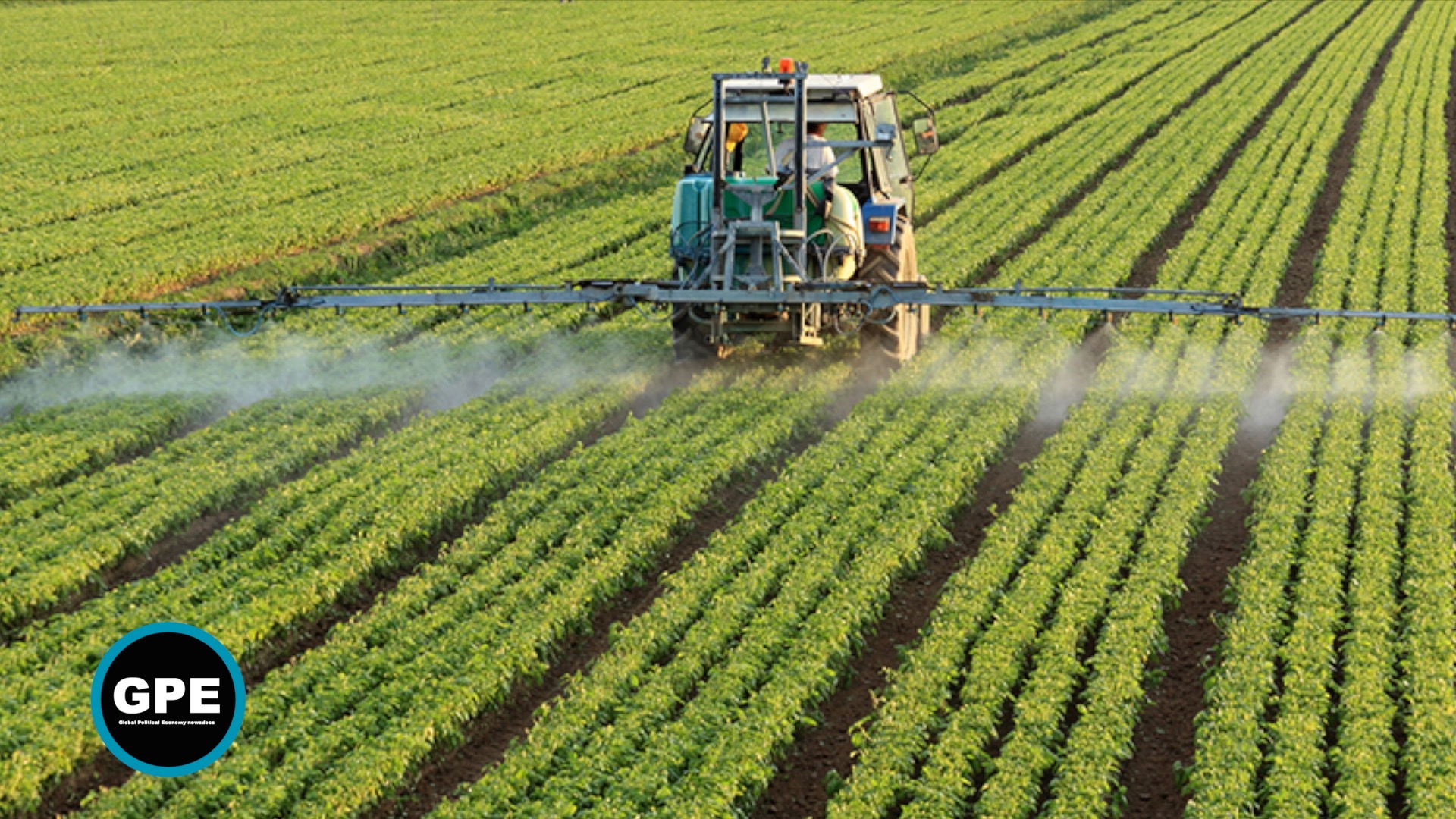

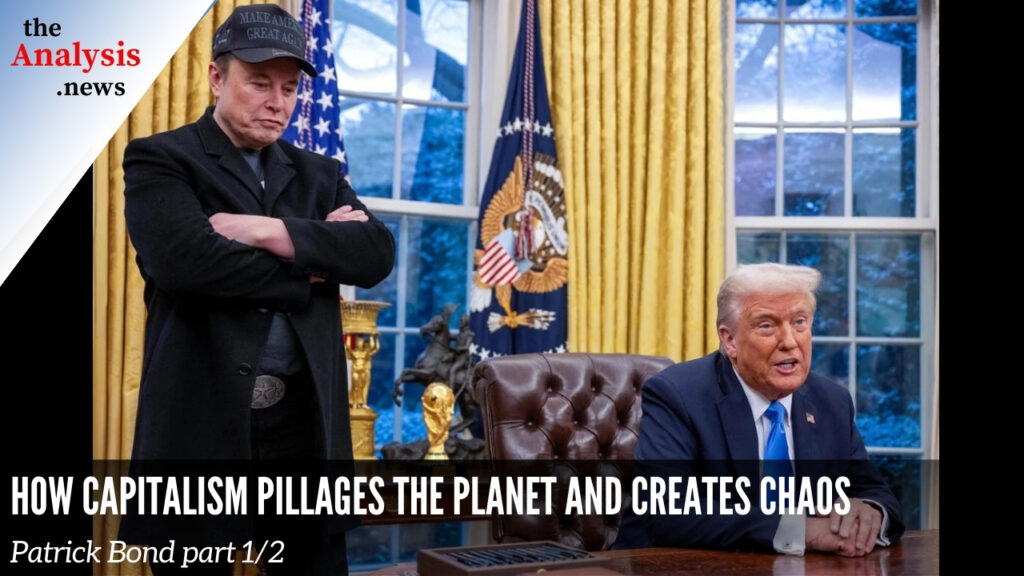








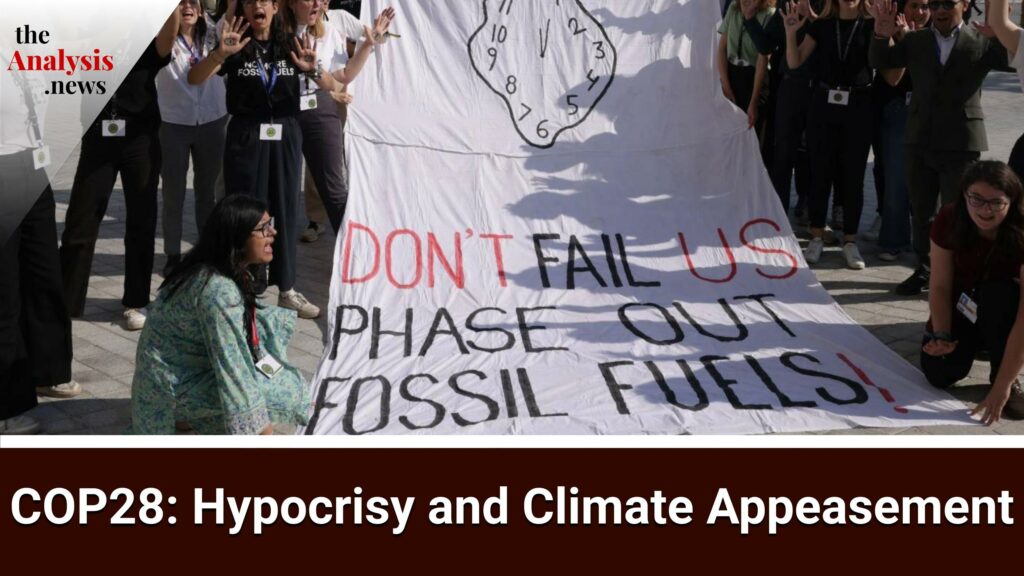
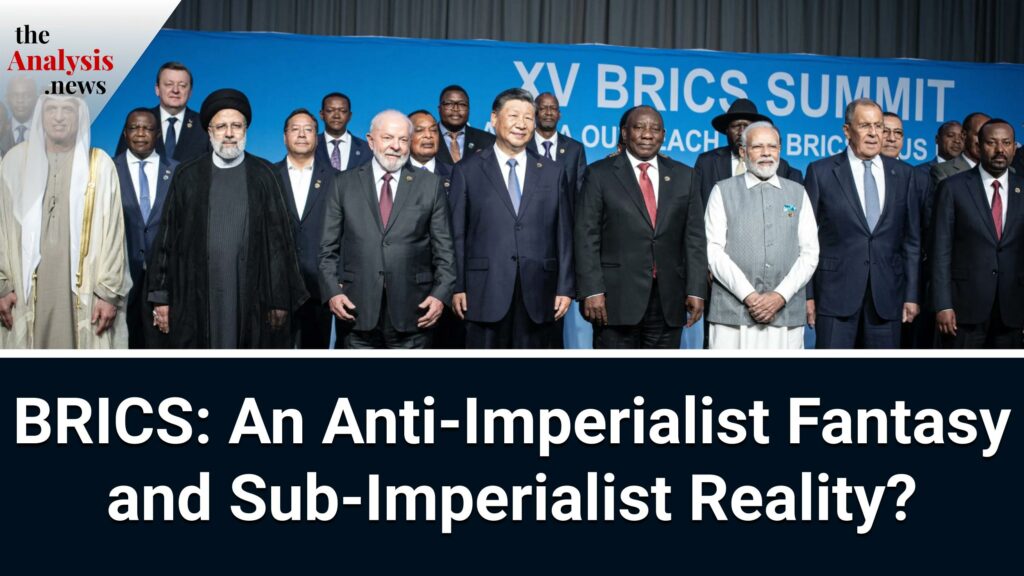


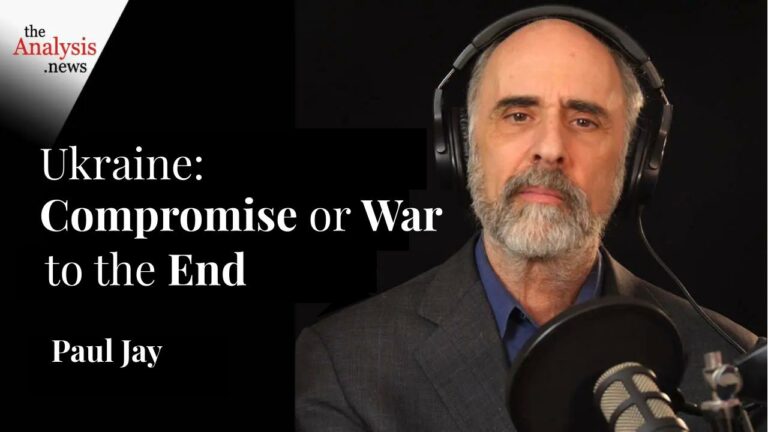
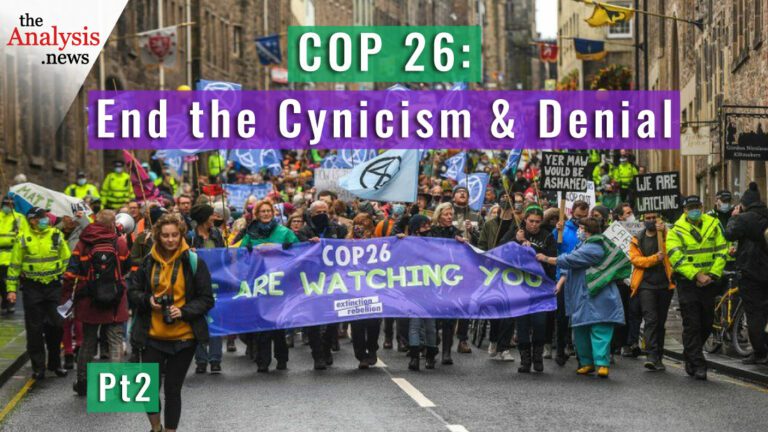


Guh… I said, “Sudan Hemp”. I should have said Sunn Hemp: https://www.fedcoseeds.com/ogs/sunn-hemp-8133
You said, “Because as I’ve said, fertilizers are part of a chemical input dependence, which is not really healthy. And where we really do need to be thinking of alternatives and we have alternatives. It’s just that those alternatives will take time. They will be more expensive. We need to invest a lot more in them. And instead of doing that, we quickly try and somehow manage the big increase in fertilizer prices.”
I’m not sure about this statement. We already have alternative and they are cheaper. For example, winter peas cover crop generates 200 pounds of nitrogen per acre. That all you need for corn which requires high amounts of nitrogen. Mix oats with the peas and you get even more return. This method is a good money saver for northern hemisphere farmers. I hardly ever see that kind of information being promoted.
Winter peas do not grow well in the tropics, but an adequate substitute is available. Sudan hemp, for example, produces even more nitrogen than peas and it grows well in the tropics.
Thanks,
Bob Spencer